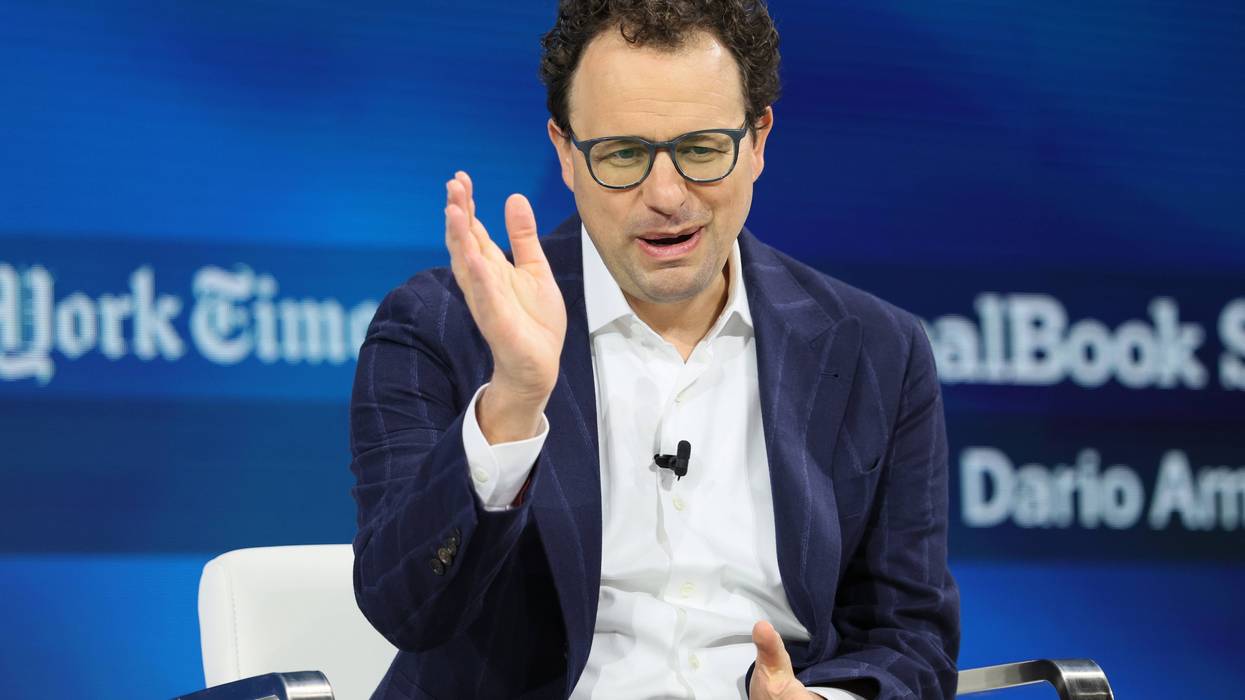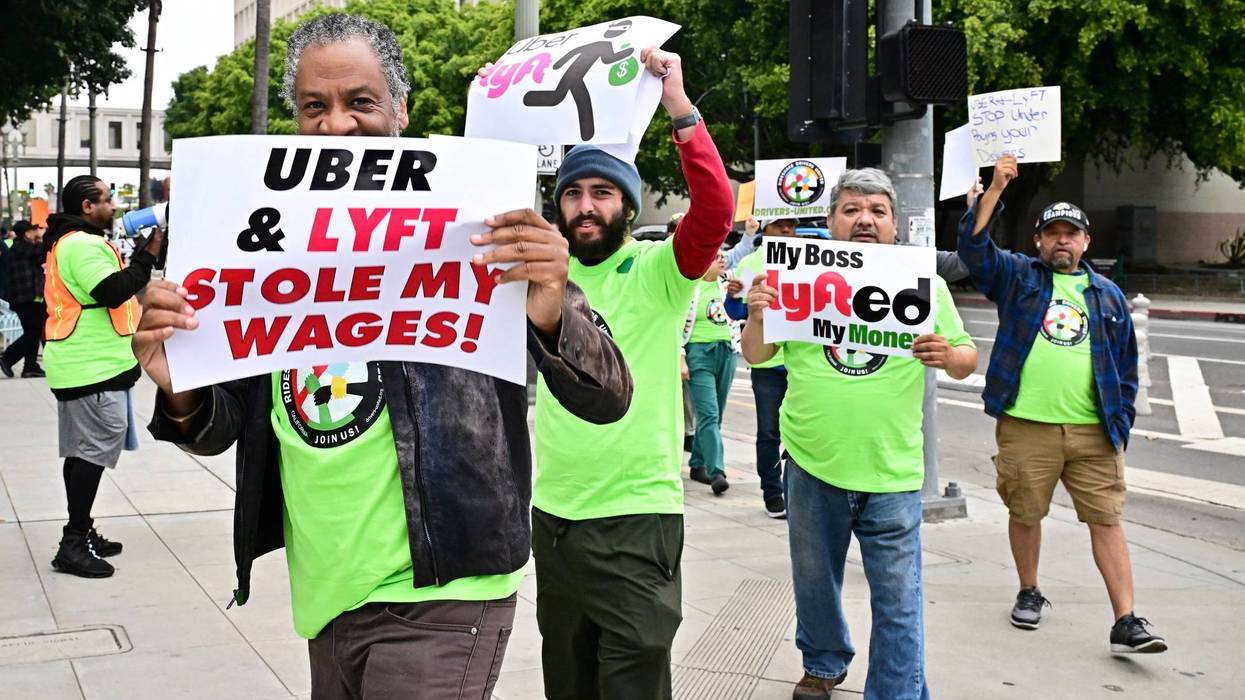March, 17 2017, 12:00pm EDT

U.S. Supreme Court's Assumption That Outside Groups Are Independent Is Proven False at the State and Local Levels
Seven Years Later, the Foundation of Citizens United Is in Ruins; At Next Week’s Hearing, Judge Gorsuch Likely to Be Asked About Money in Politics
WASHINGTON
The U.S. Supreme Court's assumption in its 2010 Citizens United v. Federal Election Commission decision that outside entities can be assumed to be independent of candidates is demonstrably false for state and local elections, as well as at the federal level, according to a new Public Citizen report (PDF).
The fallout from Citizens United and the direction the court should take on money in politics cases is likely to be a topic raised at next week's hearing on the nomination of Neil Gorsuch to be a Supreme Court justice.
The court's ruling opened the door for outside entities to collect and spend unlimited amounts of money to influence elections, and led to the creation of super PACs. But the decision was based on an assumption that outside entities act independently of candidates "by definition," as Justice Anthony Kennedy wrote for the court's 5-4 majority.
Since then, the assumption of independence has been roundly disproved at the federal level, where candidates have routinely used super PACs as virtual arms of their campaigns to evade campaign finance limits.
Public Citizen's report (PDF), "The Foundation of Citizens United Is in Ruins," documents episodes of unregulated outside groups acting as accessories to campaigns at state and local races around the country.
"Outside groups raising unlimited amounts of money - all while operating as an arm of the candidate campaigns - has warped state and local politics into the Wild West," said Michael Tanglis, senior researcher for Public Citizen's Congress Watch division and lead author of the report. "Dedicated would-be public servants now have to ask themselves: Is it really worth facing hundreds of thousands of dollars in negative advertisements just to win an unpaid school board seat?"
The report (PDF) illustrates the fallacy of assuming that outside groups truly operate independently:
- In Chicago, a super PAC dedicated largely to Mayor Rahm Emanuel's re-election was formed by close Emanuel ally Rebecca Carroll immediately after she left Emanuel's administration. Carroll has called super PACs the "shiny new object in campaigns today," as "they provide new flexibility" in states where there is "far more stringent control." The super PAC received close to a million dollars in contributions on its first day of existence from just seven individuals - all of whom had previously contributed the maximum amount directly to Emanuel's campaign.
- In Washington, D.C., a year after Mayor Muriel Bowser's election, her former campaign treasurer created an outside group, FreshPAC, which was named after Bowser's own campaign slogan - a "fresh start." FreshPAC came under intense criticism when reporting showed that many of its donors were doing business, or seeking to do business, with the District. An unidentified donor to the group told The Washington Post, "If you want to continue to have good favor with the mayor," giving to FreshPAC "is something you do."
- In Elizabethtown, N.J., a super PAC - whose largest individual donor was a for-profit bail industry lobbying group - spent hundreds of thousands of dollars to install allies on unpaid school board seats. The super PAC's expenditures were so overwhelming that the candidates it supported barely bothered to raise money for their campaigns.
- In Oklahoma, a candidate for state school superintendent, Joy Hofmeister, strategized by e-mail that the "independent" group supporting her would use anonymous corporate money to do the dirty work of running negative ads while she would "take the high road" with her ads. In one text message, Hofmeister gleefully exclaimed that a "wind turbine lobbyist [is] interested in my IE. :)." (IE stands for independent expenditure campaign.) Hofmeister has since been indicted as a result of e-mails law enforcement officials discovered during an unrelated drug bust involving one of her allies.
"If a case challenging Citizens United arrives before the court, Justice Kennedy will be presented with overwhelming evidence that the assumption of independence 'by definition' has been disproved," said Lisa Gilbert, vice president of legislative affairs for Public Citizen. "The assumption of independence is the foundation upon which the Citizens United house was built, and if the foundation is unstable, the house should come tumbling down."
Public Citizen is a nonprofit consumer advocacy organization that champions the public interest in the halls of power. We defend democracy, resist corporate power and work to ensure that government works for the people - not for big corporations. Founded in 1971, we now have 500,000 members and supporters throughout the country.
(202) 588-1000LATEST NEWS
Anthropic CEO 'Cannot in Good Conscience Accede' to Pentagon's AI Demand
"Anthropic and Dario deserve credit for standing up for two very basic and obvious principles: no mass surveillance and no autonomous killer robots," said one progressive commentator.
Feb 26, 2026
Defense Secretary Pete Hegseth gave Anthropic until Friday evening to agree to let the Pentagon use the company's artificial intelligence technology however it wants, or else. Roughly 24 hours ahead of the deadline, CEO Dario Amodei announced that "we cannot in good conscience accede to their request," and reiterated opposition to enabling autonomous weapons or surveillance of US citizens.
Anthropic's Claude was the first AI model allowed to handle classified US military data. While the Department of Defense (DOD) has now signed an agreement with Elon Musk's xAI and "is getting close to making a deal with Google," as the New York Times reported Monday, Hegseth demanded "unfettered" access to Claude during a Tuesday meeting with Amodei.
Hegseth threatened to declare the Anthropic a "supply chain risk," effectively blacklisting it for military use and ending its current contract, or invoke the Defense Production Act, which would force Anthropic to tailor the product to the DOD’s needs, if Amodei refused to drop the company's guardrails.
The CEO responded publicly with a Thursday blog post. Using President Donald Trump's preferred name for the Pentagon, he wrote that "Anthropic understands that the Department of War, not private companies, makes military decisions. We have never raised objections to particular military operations nor attempted to limit use of our technology in an ad hoc manner."
"However, in a narrow set of cases, we believe AI can undermine, rather than defend, democratic values. Some uses are also simply outside the bounds of what today's technology can safely and reliably do," Amodei continued. He explained the company's position that "using these systems for mass domestic surveillance is incompatible with democratic values."
"AI-driven mass surveillance presents serious, novel risks to our fundamental liberties. To the extent that such surveillance is currently legal, this is only because the law has not yet caught up with the rapidly growing capabilities of AI," he wrote. "For example, under current law, the government can purchase detailed records of Americans' movements, web browsing, and associations from public sources without obtaining a warrant, a practice the Intelligence Community has acknowledged raises privacy concerns, and that has generated bipartisan opposition in Congress. Powerful AI makes it possible to assemble this scattered, individually innocuous data into a comprehensive picture of any person's life—automatically and at massive scale."
The CEO also argued that "frontier AI systems are simply not reliable enough to power fully autonomous weapons. We will not knowingly provide a product that puts America's warfighters and civilians at risk." He noted that Anthropic offered to work directly with the department on research and development to "improve the reliability of these systems, but they have not accepted this offer."
Amodei concluded by expressing hope that the Pentagon revises its position, writing that "our strong preference is to continue to serve the department and our warfighters—with our two requested safeguards in place. Should the department choose to offboard Anthropic, we will work to enable a smooth transition to another provider, avoiding any disruption to ongoing military planning, operations, or other critical missions."
Amodei's blog post followed CBS News reporting earlier Thursday that "Pentagon officials on Wednesday night sent Anthropic their best and final offer in negotiations for use of the company's artificial intelligence technology."
It also came just hours after Pentagon spokesperson Sean Parnell responded to a related post from a Google scientist on Musk's social media platform X. The DOD official claimed that "the Department of War has no interest in using AI to conduct mass surveillance of Americans (which is illegal) nor do we want to use AI to develop autonomous weapons that operate without human involvement. This narrative is fake and being peddled by leftists in the media."
"Here's what we're asking: Allow the Pentagon to use Anthropic's model for all lawful purposes. This is a simple, commonsense request that will prevent Anthropic from jeopardizing critical military operations and potentially putting our warfighters at risk. We will not let ANY company dictate the terms regarding how we make operational decisions," Parnell added, noting the Friday deadline and the threat to "terminate our partnership with Anthropic and deem them a supply chain risk."
While Amodei and observers await the Pentagon's next move, several Anthropic employees, other tech experts, and critics of the Trump administration praised the CEO for "standing on principle" and choosing "war with the Department of War."
"Anthropic and Dario deserve credit for standing up for two very basic and obvious principles: no mass surveillance and no autonomous killer robots," said progressive commentator Krystal Ball. "Perhaps this is a low bar but it isn’t clear any of the other leading AI companies would put principle above profits in ANY scenario. The Pentagon is sure to make Anthropic pay for daring to defy them."
Keep ReadingShow Less
Trump's Revived Anti-Worker Rules Condemned as 'Outright Grift'
"Every day, little by little, the Trump administration is rigging the system to benefit giant corporations and shortchange workers," said one senator.
Feb 26, 2026
President Donald Trump's "barrage of attacks on workers" continued on Thursday with announcements about two key labor rules.
The US Department of Labor (DOL) proposed an independent contractor rule that the National Employment Law Project (NELP) called "yet another example of the administration siding with major corporations and stacking the deck against working people" by "effectively allowing employers to strip workers of federal minimum wage and overtime protections."
The DOL's Wage and Hour Division proposal would replace the Biden administration's widely celebrated 2024 policy for when employers can treat workers as independent contractors under the Fair Labor Standards Act with business-friendly guidance that resembles a rule adopted just before the end of Trump's first term.
"This rule will have profound real-world consequences for working people," warned NELP. "Misclassification is common in many labor-intensive, poorly paid jobs—jobs like home healthcare, janitorial work, landscaping, personal services, and increasingly, app-dispatched ride-hail and delivery—where people of color and immigrants are overrepresented, and workers lack the bargaining power to negotiate higher wages and better working conditions."
NELP pointed to research showing that low-paid independent contractors "lag behind their employee counterparts," and some "do not even earn the federal minimum wage." The organization stressed that "this rule threatens to enshrine a two-tiered labor system where similarly situated workers receive vastly different rights and protections based on the classification chosen by the business employing them."
The new rule—which now faces a 60-day public comment period—focuses on two "core factors" to determine an employee's classification: the nature and degree of control over the work, and the worker's opportunity for profit or loss based on initiative or investment.
NELP argued that "by elevating two factors above other equally important factors, the Trump administration's test fails to account for the economic realities of many working relationships. Many workers labeled as independent contractors are not really in business for themselves because they are integrated into the operations of a larger business structure that sets most of the terms of the work."
"In app-dispatched ride-hail and delivery jobs, for example, corporations like Uber, Lyft, DoorDash, and Amazon use apps and algorithms to offer shifts or assignments to so-called independent contractors doing the core work of the business, set the wages these workers receive, surveil and assess their performance, and determine if they are offered future assignments or get 'deactivated,'" the group noted. "App-based ride-hail and delivery workers perform difficult and dangerous work without basic employment protections like the right to minimum wage and overtime, workers' compensation, and unemployment insurance."
As NELP and other critics sounded the alarm over the DOL proposal on Thursday, the National Labor Relations Board (NLRB) also revived an effort from Trump's first term, reinstating that administration's 2020 rule on joint employers.
During Trump's initial administration, the NLRB required joint employers to "possess and exercise substantial direct and immediate control" over at least one aspect of the workers' employment. In 2023, under former President Joe Biden, the board decided that two or more entities could be considered joint employers if they had an employment relationship with the workers and helped to determine their terms and conditions of employment. However, the latter was blocked by a Trump-appointed judge the next year.
Unlike the DOL proposal, the board's rule is final. The NLRB—which has two Trump appointees, one Biden appointee, and two vacancies—said in the Federal Register that "the 2023 rule was vacated by the district court, and the action the board takes today merely implements the court's decision. Our action is ministerial and therefore will have no separate economic effect."
US Sen. Patty Murray (D-Wash.), a senior member and former chair of the Senate Health, Education, Labor, and Pensions Committee, declared in a Thursday statement that "every day, little by little, the Trump administration is rigging the system to benefit giant corporations and shortchange workers—it's an outright grift and working people should be furious."
"The joint employer rule is nothing more than a return to Trump's anti-worker policies that let giant corporations skirt their basic obligations to employees—Trump is giving the biggest corporations cover to deny workers their ability to band together for better wages and working conditions and leaving millions of workers in the lurch, vulnerable to egregious violations of their rights," she said.
"At the same time, today, the Trump administration announced they're working to rescind the independent contractor rule," Murray continued. "Trump wants to let giant corporations classify workers as contractors so that they don't have to pay them minimum wage and overtime—these workers deserve fair pay."
The senator then took aim at the so-called One Big Beautiful Bill Act that congressional Republicans passed and the president signed last summer, saying that "under the Trump administration, giant corporations get giant tax breaks paid for by cutting Medicaid—the healthcare that the poorest workers are forced to rely on."
"Now, Trump wants those same corporations off the hook for every benefit, protection, and dollar they'd otherwise owe to millions of workers—it's a shakedown," she asserted. "Republicans are proving time and again, they don't care about workers—they don't want to even let workers have crumbs, but billionaires can get trillions in tax breaks that will blow up our national debt."
Murray isn't up for reelection in November's closely watched midterms, but could lead the Senate Appropriations Committee if Democrats reclaim the chamber. On Thursday, she vowed that "I am going to keep fighting for laws on the books that protect workers and build an economy that grows the middle-class, not just profit margins for the largest corporations on Earth."
Keep ReadingShow Less
Israel Responsible for Two-Thirds of Journalist Deaths in 2025: Press Freedom Group
The number of journalists killed by Israel is remarkably high even when compared to the number of journalists killed in other conflict zones.
Feb 26, 2026
A new report from a major press freedom group has found that a record 129 journalists were killed in 2025, and that Israel was responsible for two-thirds of the worldwide total.
The Tuesday report from the Committee to Protect Journalists says that the Israeli military has cumulatively killed more journalists than any other government since CPJ started tracking reporter deaths in 1992, with the vast majority being Palestinian media workers in Gaza.
The report also finds an increase in the use of drones to attack journalists, with Israel accounting for more than 70% of the 39 documented instances of reporters killed by drone strikes.
The number of journalists killed by Israel is remarkably high even when compared to the number of journalists killed in other conflict zones.
Only nine journalists were killed in Sudan, for example, while just four journalists were killed in Ukraine, despite both countries being in the midst of brutal conflicts that have collectively killed hundreds of thousands of people.
A report issued in December by Reporters Without Borders similarly found that Israel was responsible for the most journalists deaths in 2025, the third consecutive year that the country had held that distinction.
The CPJ report also points the finger at governments for not taking their responsibilities to protect journalists seriously.
"The rising number of journalist deaths globally is fueled by a persistent culture of impunity," the report states. "Very few transparent investigations have been conducted into the 47 cases of targeted killings (classified as 'murder' in CPJ’s longstanding methodology) documented by CPJ in 2025—the highest number of journalists deliberately killed for their work in the past decade—and no one has been held accountable in any of the cases."
CPJ CEO Jodie Ginsberg said that attacks on the media are "a leading indicator of attacks on other freedoms, and much more needs to be done to prevent these killings and punish the perpetrators," adding that "we are all at risk when journalists are killed for reporting the news.”
Keep ReadingShow Less
Most Popular


